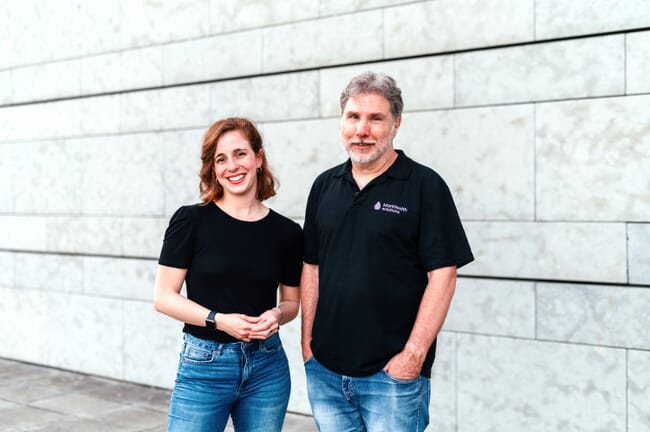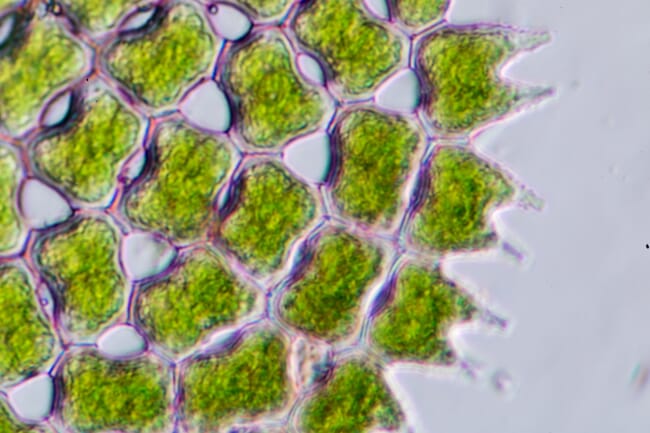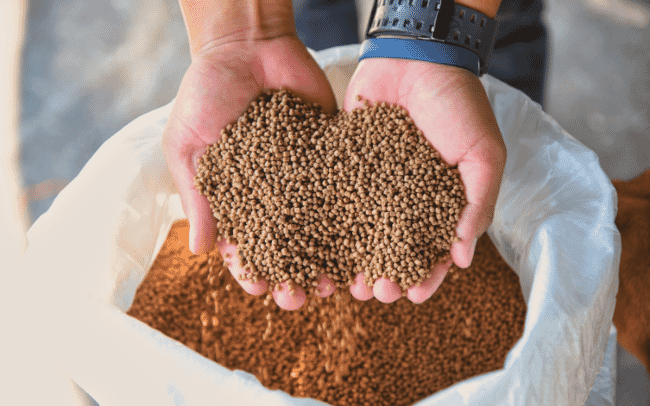
So explain Prof Vernon Coyne and Dr Sarah Carroll, co-founders of MariHealth Solutions – a startup that has been exploring the value of proteomics in aquaculture. Although their initial focus was on the booming abalone industry in their native South Africa, where they demonstrated that they could measure changes in the metabolism and stress levels of the valuable molluscs, they pivoted towards salmon and trout in the first half of 2023.
“We travelled extensively in Norway last year – not just to meet with clients and investors but also to get a better understanding of where our technology could plug into the salmon sector. In the last 8-10 months we’ve been working on refining our value proposition and are now focusing on the aquafeed and novel feed ingredient sectors,” explains Carroll.
“There’s a lot of research going into these, with regular trials taking place to validate new products. And proteomics can be an enabling tool for that industry,” she adds.
Proteomics can have a variety of applications in aquafeeds, depending on the client’s requirements.
“If they have a feed ingredient that apparently improves disease-resistance, proteomics will provide insights at a decent level of complexity to show what components of the immune system the ingredient is affecting, thus helping to validate their claims and allowing them to market their feed with confidence,” explains Coyne.
“It means that their trials can be much shorter and, at the same time, much more conclusive, rather than running a six-month trial and getting vague results. It can be a lot more focused and a lot more controlled,” he adds.
MariHealth can also tailor trials to match a client’s budget.
“We’ve done on-farm trials with as few as 25 fish with diets containing a novel ingredient and 25 fish as controls that ran for only two weeks, with samples only required at the beginning and end of the period,” notes Coyne.
While the analysis requires a sophisticated mass spectrometer, as well as skilled analytics, the blood samples are easily collected by farmers themselves.
“We’ve found that the farmers are already taking the samples and so we can piggy-back onto those samples - all we need are 2-3 drops of blood, from which we can identify about 3,000 proteins per sample,” Carroll notes.
“We want to simplify protein data and analytics for our clients – all they have to do is send us their samples and we’ll send back a comprehensive report,” she adds.

Customer feedback
Carroll and Coyne have noted that in Norway there’s been an uptick in interest in both alternative and functional ingredients, as salmon farmers face increasing pressure – both financial and ethical – to reduce the mortality levels that have been occurring in recent years, as well as wean themselves off a reliance on marine ingredients.
“There’s more emphasis on aquafeed companies helping to address the health challenges in the salmon sector, by making the fish more robust, rather than relying on reactive solutions,” notes Carroll.
“Companies are also wanting to differentiate themselves from their competitors and we can help them do that with definitive data to buttress their claims,” she adds.
Clients have included Skretting, the feed division of Aker BioMarine, as well as Maltento – a South African insect protein producing startup, that’s diversifying from petfood into aquaculture.

Looking ahead
MariHealth closed its seed funding round in April 2023, which included an investment from Olaisen Blue, and since secured bridge funding to tie them over until they can raise series A funding – most likely in 2025.
“The series A will not only enable our international expansion – setting up a company and lab facilities in the EU to be close to the Norwegian market – but also for expanding the team,” Carroll reflects.
As a result, they plan to maintain their regular visits to Norway, and will be there the whole of September this year. However, their longer-term ambitions are more extensive, as they are working on expanding their product range too.
“Being new and early stage it makes sense to be very targeted, but the great thing about what’s coming in the pipeline is that we can start to apply to different species,” Carroll points out.
“Although we’ve been focusing on salmon, our technology is species agnostic, so if clients working on shrimp reach out to us, we will be able to assist them ,” she adds.




